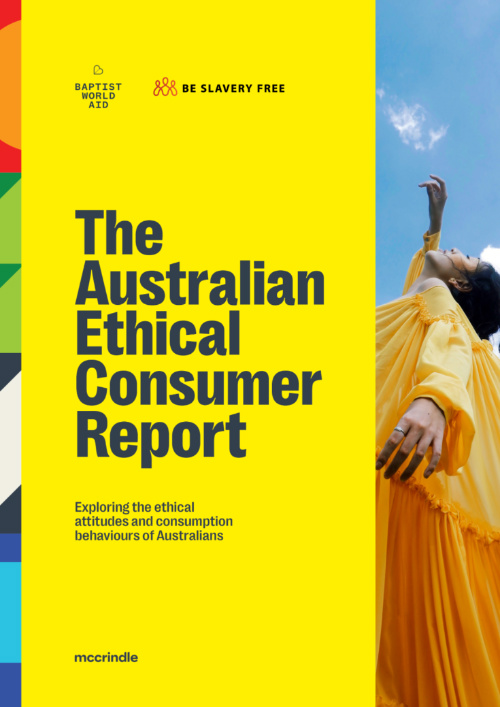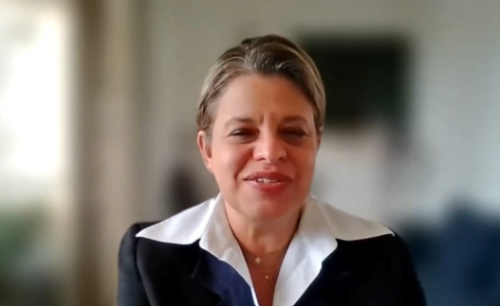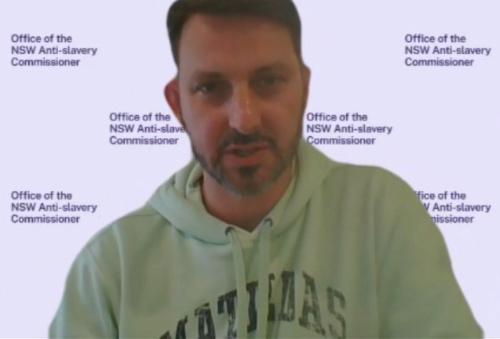Sydney, Australia

The second edition of The Australian Ethical Consumer Report, released on Monday by Baptist World Aid, shows that Australians want to eradicate modern slavery through making good purchasing choices.
The report found there are 49.6 million people trapped in modern slavery around the world today, saying that it “insidiously pervades the global supply chains of the products that we purchase” including in fashion, electronics and seafood industries – and even in the chocolate we consume.
However, there is good news with the report revealing that more Australians are becoming aware of the impact their purchases make in combatting modern slavery.
Awareness has grown by seven per cent since the previous report in 2021.
There are also more Australians, two out of five, engaging with resources that inform them about ethical consumption, compared to one in 10 in 2021.
While the report revealed that 70 per cent of Australians want to have their shopping habits reflect ethical practices, cost of living pressures see 73 per cent of shoppers make their purchasing decisions influenced by value for money.
Only 14 per cent admitted to buying brands that have adopted ethical or responsible business practices as their most influential priority.
Speaking at a webinar held jointly by Baptist World Aid and Be Slavery Free last week, Sarah Knop, of Baptist World Aid, said data for the report was collected by McCrindle from an online survey of 1,000 Australians with national representation across age, gender and geography.
“Despite the rise in awareness, the percentage of Australians seeking to change their shopping habits to align with their values in the next 12 months, has disappointingly decreased from 87 per cent when we surveyed in 2021 to 70 per cent in 2023,” said Knop.
Knop said the recent interest rate rise would add to the burden experienced by many, and hence would prioritise their costs and personal benefits.
“With a slight increase on 2021, the most significant barrier for changing consumption habits is the perceived expense of shopping ethically,” she said.
“Closely followed by a…lack of reliable and easily accessible information…not knowing what brands are ethical, finding it harder to shop instore than online and not really knowing where to get started.”

Leila Naja Hibri, CEO of the Australian Fashion Council, at the webinar. PICTURE: Screenshot
Leila Naja Hibri, CEO of the Australian Fashion Council, said the disappointing reduction of ethical shopping habits was a natural consequence of the downturn of the economy.
“When people are looking at survival they will attempt to consider the most economical way they can buy their products,” she said.
“There is this perception that a quality product, a sustainable product or responsible product is too expensive.”
Brand companies, according to Hibri, should be authentic when it comes to providing information to consumers about the ethical nature of their products.
“Be transparent. I think that’s the most important thing that brands can do,” she said.
“They can use labelling and information on the website, using QR codes and other ways using technology to really explain what their products are made from, how they were sourced, where they were sourced and so on.”
We rely on our readers to fund Sight's work - become a financial supporter today!
For more information, head to our Subscriber's page.

Dr James Cockayne, New South Wales anti-slavery commissioner. PICTURE: Screenshot
Dr James Cockayne, anti-slavery commissioner in the state of New South Wales, said modern slavery was defined as when one person or a company treats another person as if they owned them.
“It’s no longer legal to own another person as property,” he said. “We abolished that law a couple of hundred years ago.”
Cockayne said ‘modern slavery’ was an umbrella term that includes offences such as forced labour, debt bondage and forced marriage.
“There are very serious allegations…in a part of China…where 20 per cent of the world’s cotton is produced…people have been subjected to state sponsored forced labour – a form of modern slavery,” he said.
“These people are producing cotton that gets mixed in with…cotton from all around the world, and when I go to buy my jeans and I see a product of Viet Nam, the question is where does the cotton come from?”
Cockayne said it’s not just cotton, but leather and even mica found in cosmetics that makes it very difficult for consumers to know what they are buying.
“The reality is…we almost certainly all have bought products of modern slavery…not necessarily wittingly,” he said. “Consumers feel a little disempowered about whether they can make an impact on this problem.”
But with the data showing 58 per cent of people don’t believe they can make a difference, Cockayne said it remains real challenge to mobilise effective action to tackle the problem.






